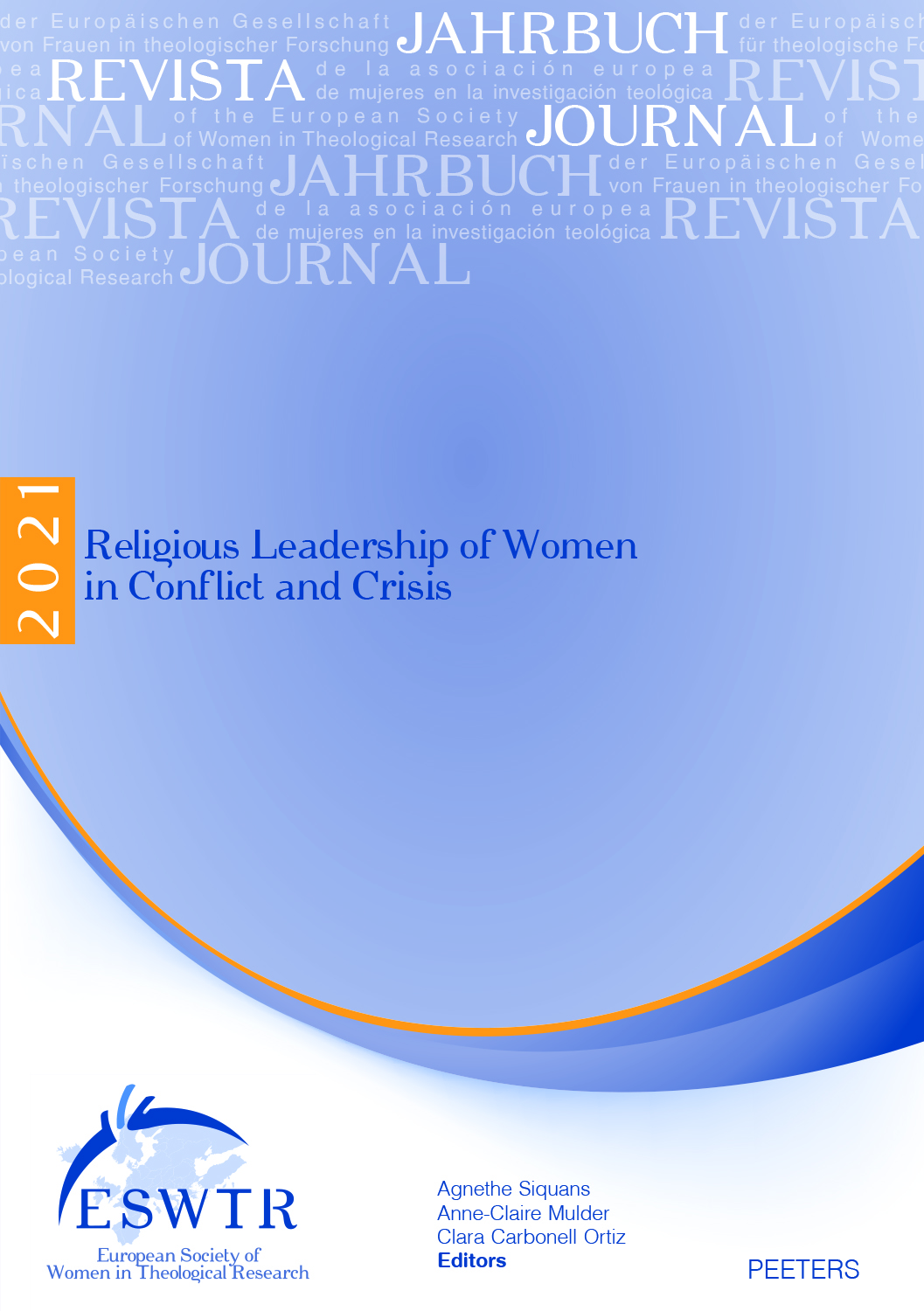 previous article in this issue previous article in this issue | next article in this issue  |

Preview first page |
Document Details : Title: Fake Democracies and the Political Consequences of the Christian Notion of Person Author(s): FORCADES I VILA, Teresa Journal: Journal of the European Society of Women in Theological Research Volume: 22 Date: 2014 Pages: 55-68 DOI: 10.2143/ESWTR.22.0.3040790 Abstract : 'Fake democracies' are systems of governance that allow their citizens to vote, but then lack effective controls to avoid that those elected legislate and rule against the interests or even against the explicit will of the majority. This is a complex phenomenon present in western capitalist societies at the turn of the 21st century that needs to be studied carefully. In this article, I analyze the theological notions of co-creation, unity in diversity, inseparability of love and freedom, and metanoia, in order to emphasize their potential for grounding a notion of person able to carry on the political changes needed to transform fake democracies into true ones. To the notion of 'co-creation' corresponds a subject (a person) able to assume political responsibility at the individual and at the collective level. To the notion of 'unity in diversity' corresponds a subject (a person) able to foster plurality and queer identities. To the notion of “inseparability of love and freedom” corresponds a subject (a person) able to overcome gender stereotypes and false individualistic freedom. And finally, to the notion of metanoia corresponds a subject (a person) able to understand and to carry on a permanent revolution. This can be a Christian theological contribution to a necessary and urgent social change. A theological contribution inspired in the gospel that, far from being exclusivist, understands itself as being in dialogue with all other currents of thought that feel as their own the pleas for justice of the poor. 'Scheindemokratien' sind Regierungssysteme, die zwar ihren Bürgern und Bürgerinnen das Wahlrecht zugestehen, aber dann nicht die Kontrollsysteme haben, um zu verhindern, dass die Gewählten gegen die Interessen oder sogar gegen den expliziten Willen der Mehrheit Gesetze erlassen und herrschen. Dieses komplexe Phänomen ist in westlichen kapitalistischen Gesellschaften an der Wende zum 21. Jahrhundert zu finden und muss sorgfältig untersucht werden. In diesem Beitrag analysiere ich die theologischen Begriffe der Teilhabe an der Schöpfung, der Einheit in Vielfalt, der Untrennbarkeit von Liebe und Freiheit und der Metanoia (Umkehr), um ihr Potential für die Begründung eines Konzepts von Person zu betonen, das die politischen Veränderungen tragen kann, die notwendig sind, um Scheindemokratien in wirkliche zu verwandeln. Dem Begriff der 'Teilhabe an der Schöpfung' korrespondiert ein Subjekt (eine Person), das politische Verantwortung auf dem individuellen und kollektiven Niveau übernehmen kann. Dem Begriff 'Einheit in Vielfalt' korrespondiert ein Subjekt (eine Person), das Pluralität und queere Identitäten fördern kann. Dem Begriff 'Untrennbarkeit von Liebe und Freiheit' korrespondiert ein Subjekt (eine Person), das Geschlechterstereotype und falsche individualistische Freiheit überwinden kann. Und dem Begriff Metanoia korrespondiert schließlich ein Subjekt (eine Person), das eine permanente Revolution verstehen und tragen kann. Dies kann ein christlich-theologischer Beitrag zu einer notwendigen und dringenden sozialen Veränderung sein. Ein theologischer Beitrag inspiriert vom Evangelium, das – weit davon entfernt, exklusivistisch zu sein – sich als im Dialog mit allen anderen Denkströmen versteht, die das Flehen der Armen um Gerechtigkeit als ihr eigenes empfinden. Las 'falsas democracias' son sistemas de gobierno que permiten a sus ciudadanos votar, pero no tienen controles que eviten que los políticos electos legislen y gobiernen en contra de los intereses o incluso en contra de la voluntad explícita de la mayoría. Este es un fenómeno complejo propio de las sociedades capitalistas occidentales de principios del siglo XXI que debe ser cuidadosamente estudiado. En este artículo analizo las nociones teológicas de 1. co-creación, 2. unidad en la diversidad, 3. indisociabilidad del amor y la libertad y 4.metanoia, a fin de destacar su potencial para fundamentar una noción de persona capaz de llevar a cabo los cambios políticos necesarios para transformar las democracias falsas en verdaderas. A la noción de 'co-creación' corresponde un sujeto (una persona) capaz de asumir responsabilidad política a nivel individual y colectivo. A la noción de 'unidad en la diversidad' corresponde un sujeto (una persona) capaz de potenciar la pluralidad y las identidades queer. A la noción de 'indisociabilidad del amor y la libertad' corresponde un sujeto (una persona) capaz de superar los estereotipos de género y la falsa libertad individualista. Y finalmente, a la noción de 'metanoia' corresponde un sujeto (una persona) capaz de entender y de llevar a cabo una revolución permanente. Esta puede ser una contribución teológica cristiana a un cambio social urgente y necesario. Una contribución teológica basada en el evangelio que, lejos de ser exclusivista, se reconoce en diálogo con todas las corrientes de pensamiento que sienten como propias las exigencias de justicia de los pobres. |
 |


